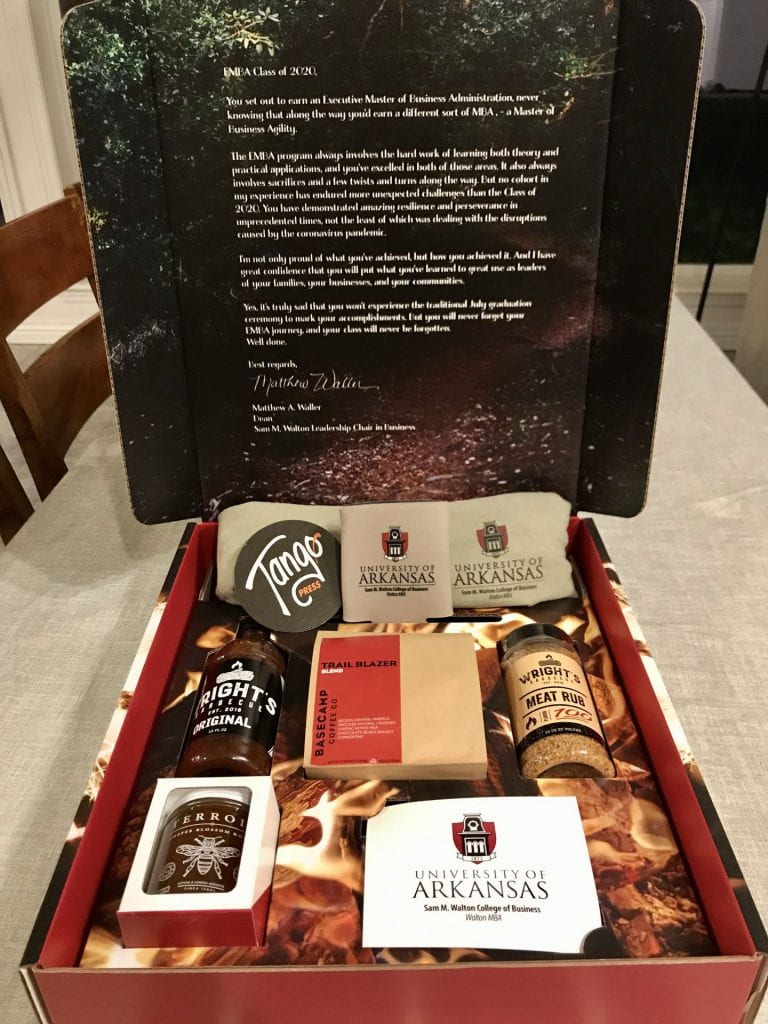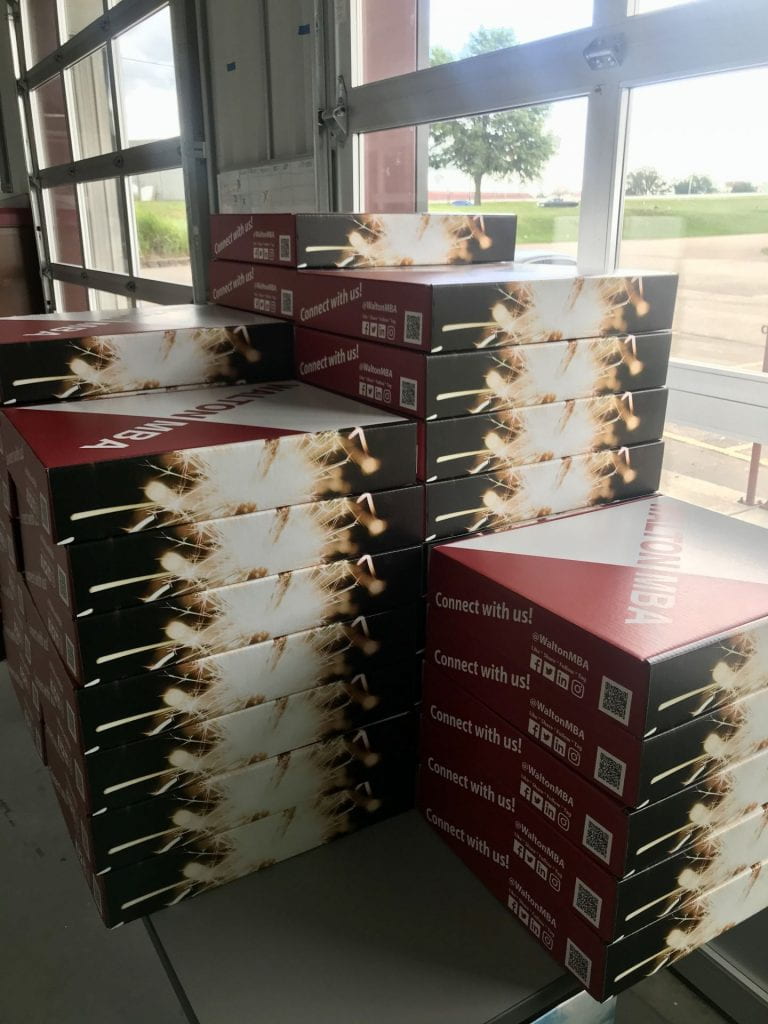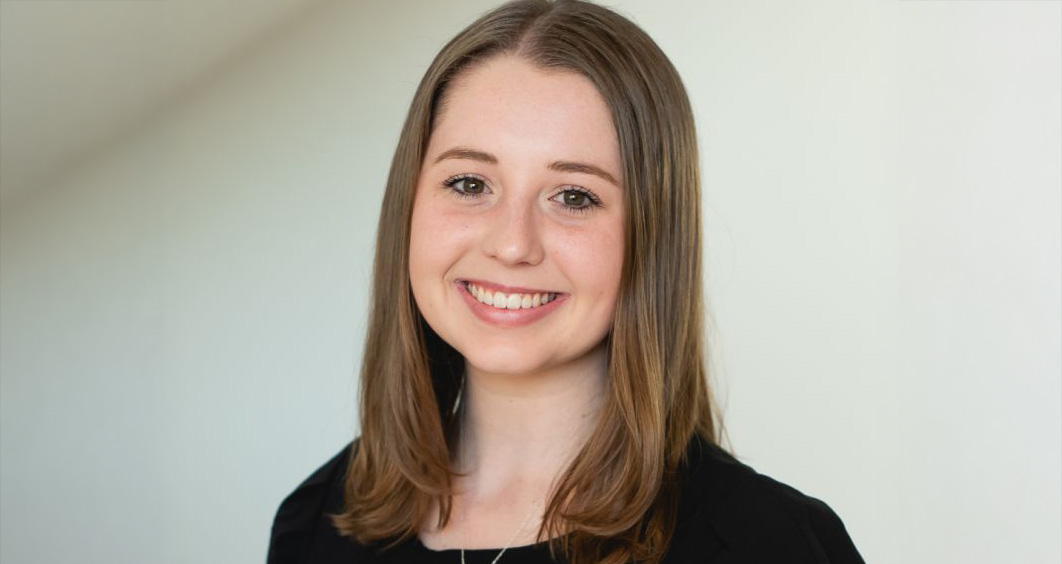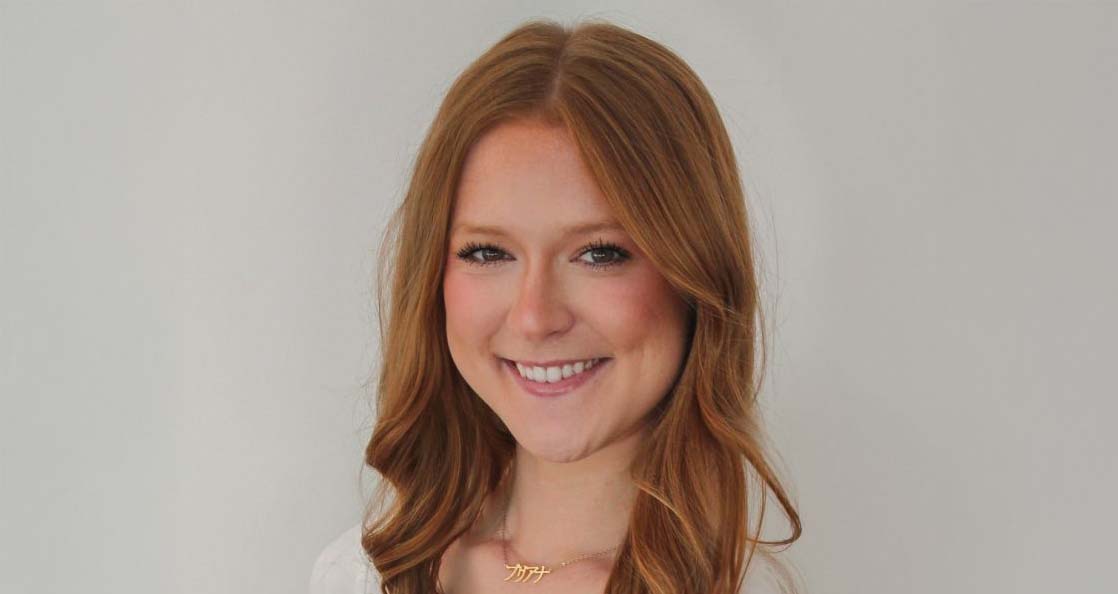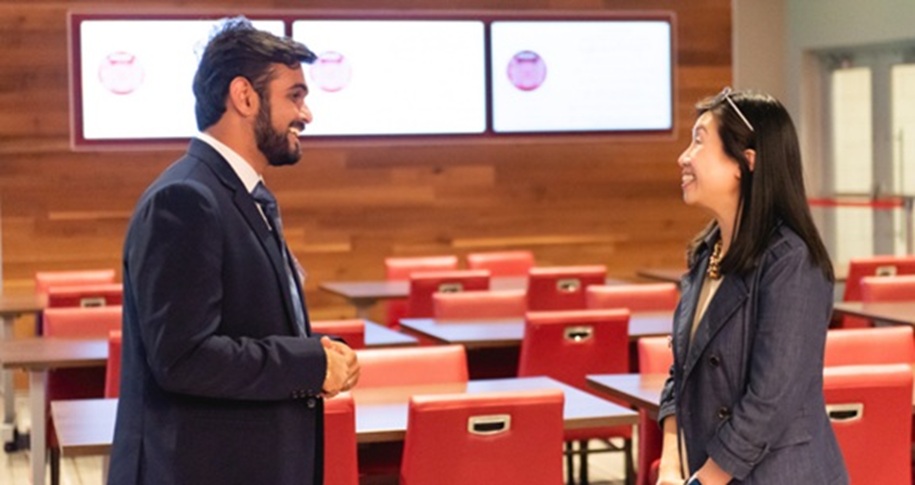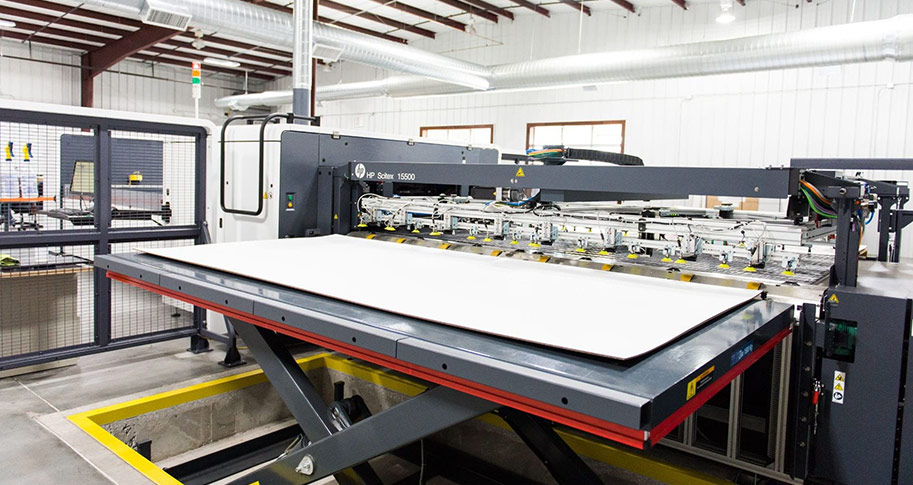
Small businesses are facing the brunt of COVID-19 shutdowns. In one of the first analyses of the impacts of the pandemic on small businesses, Stanford reported a 22% reduction in active small business owners between February and April – an estimated loss of 3.3 million businesses in less than three months. However, some businesses are thriving under the current social and economic climates. Walmart’s online sales are up 74% and telehealth visits are skyrocketing. But why are some businesses doing better than others?
COVID-19: Impact on Small Businesses and Entrepreneurs
John Ballentine, an entrepreneur and Walton College Executive MBA alum, says many people have asked him how his digital printing business, Tango Press, has responded to COVID-19. His answer? Keep doing what they have been doing. “It’s a constant battle to improve processes while maintaining agility and speed, all while keeping a close eye on the market and listening and responding to customer needs. Operating during a pandemic hasn’t been too different,” John says. Tango Press continues to offer creative, innovative and “lightning fast” solutions for their customers. Tango Press’s response might be to simply keep doing what they were already doing, but it works.
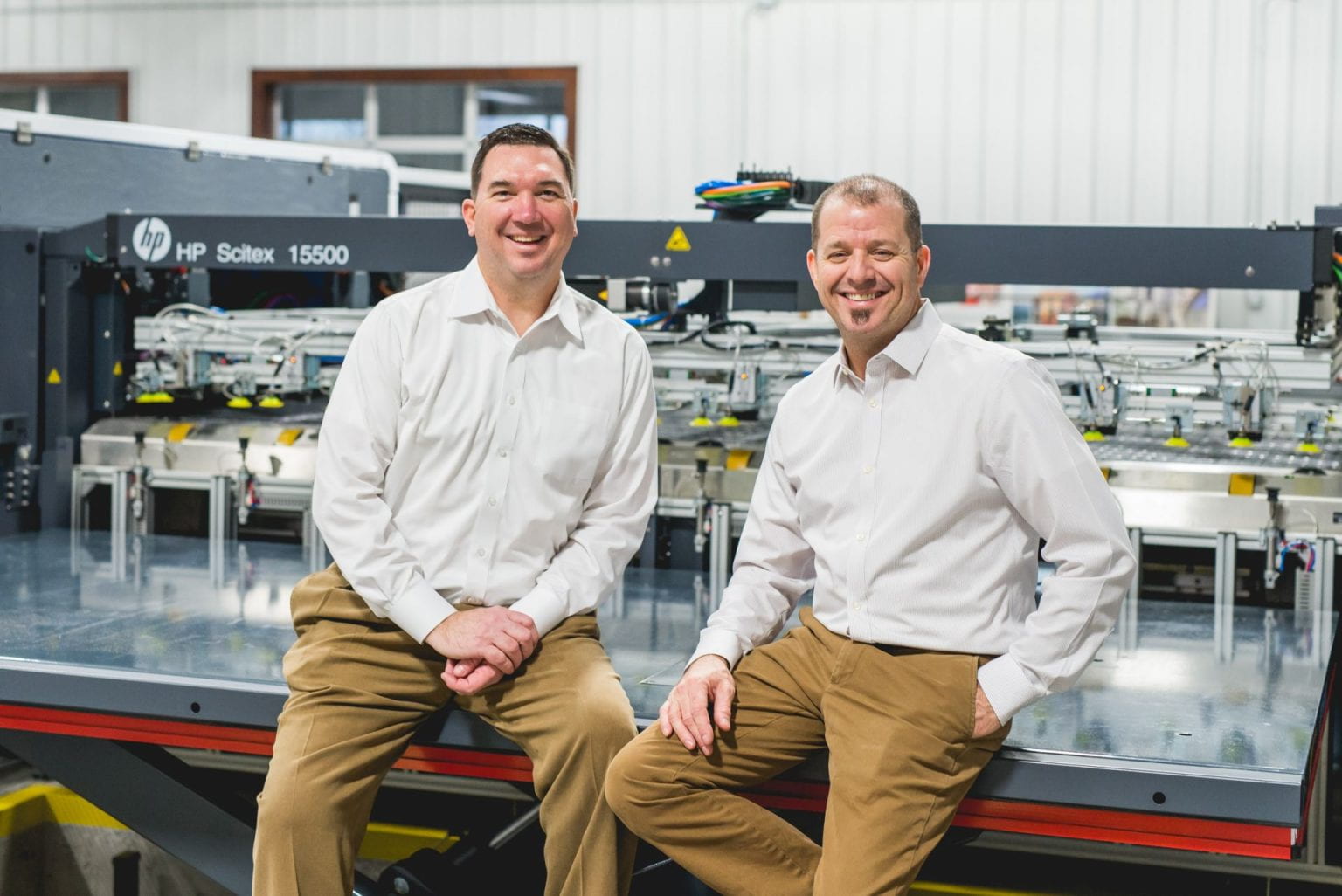
“Be great at what you are great at, listen to the trends and respond to the market,” says John. Tango Press is known for their high-quality custom boxes, but John says the company is really a solutions provider: “Even though Tango Press makes boxes, we are really a solutions provider. That doesn’t change. What may change is the problem we are trying to solve.”
“Be great at what you are great at, listen to the trends and respond to the market,” says John. Tango Press is known for their high-quality custom boxes, but John says the company is really a solutions provider: “Even though Tango Press makes boxes, we are really a solutions provider. That doesn’t change. What may change is the problem we are trying to solve.”
Pulling Through the Pandemic: Identifying and Responding to Emerging Markets
The ability to identify emerging markets and to build a business model that embraces sudden market shifts has helped Tango Press survive the start-up phase and the pandemic. John says several trends have emerged in the wake of COVID-19:
“CPG [Consumer Packaged Goods] companies have pulled-back on product launch investments – 1,000,000-unit orders are becoming 10,000-unit orders and uncertainty-related last-minute orders have caused an increase in demand for shorter run times. There has also been a significant decrease in retail and entertainment orders, but I expect production to pick-up soon. At the same time, marketing and promotional orders have skyrocketed.”
John expects some of these trends to continue post-pandemic as new customers enter the market searching for new solutions to problems created by COVID-19. But identifying markets and knowing how to take advantage of them isn’t as easy as John makes it sound.
How to Become a Successful Entrepreneur: Leveraging Experience and Education
John knows packaging. He received his bachelor’s degree in Packaging Science with a focus on printing technology from Clemson University in 1992 and accepted a position as an application specialist for Sealed Air. John spent another 14 years in the packaging industry, working with companies like Nestle, Tyson, Kohler, Campbell’s Soup, Smucker’s, General Mills and Kimberly Clark, before meeting Dean Matthew Waller, a professor in the Department of Supply Chain Management teaching in the Walton MBA programs at the time, for lunch in 2006 while on a business trip to Northwest Arkansas. John and Dean Waller bonded over the intersection of packaging and supply chain, and eight months later John applied to the Executive MBA program at Walton College.
John joined a diverse cohort of working professionals in the Walton EMBA program. On average, Walton EMBA candidates have 7.5+ years of industry experience and come from diverse backgrounds in healthcare, marketing, management, supply chain and more. John says he was able to apply the concepts and theories he was learning in class to his experiences in the packaging industry, while his peers offered other real-world applications drawing on their own experiences. John also spent a lot of time working on his margins while in the EMBA program – the things he “wasn’t that good at.” He encourages MBA students and entrepreneurs to do the same.
John came from a technical background as a packaging engineer and he had to dive deep into corporate finance, statistics and management as an MBA student. At the same time, John built on what he was already great at: packaging. The skills John gained in the program would eventually help him design and operate a multi-million dollar business.
Entrepreneurship and Innovation: The Tango Press Business Model
John relocated to Northwest Arkansas permanently in 2007 and in 2008 he graduated from the EMBA program. He joined International Paper the same year where he served as a technical sales manager for nine years. Over time, John observed subtle (but growing) changes in the marketplace. He identified market gaps and areas of increasing demand in the packaging industry. Customers wanted lower entry costs, shorter lead times, enhanced graphics, diverse proliferation and custom products. John says customers didn’t want to buy 100,000-unit orders – they wanted 3,000, 1,000, 100 units of custom, high-quality products. Simultaneously, the advent of digital printing offered a technology capable of meeting this growing demand and gap in the market within the packaging industry.
John’s lightning fast attitude, experience and education helped protect his business during COVID, but also helped cement Tango Press as a world-renowned digital printing facility. The $2 million, 15,000 sq. ft. facility in Springdale, Ark., hosts customers and trade partners from around the world for training at the Tango Press Packaging Innovation Lab. As a result of his MBA training and professional experience, John says he is also able to provide consultative business services, and Tango Press has started to participate in a growing number of training and knowledge-sharing events.
Tango Press’s unofficial motto, “Artwork today, packaging tomorrow,” continues to reinvent commercial lead times while reducing entry costs and filling market gaps to meet consumer demand. Tango Press offers affordable, high quality printing and packaging with no entry costs and incredibly fast turnarounds. Projects that once had costly buy-ins for analog printing plates, 6-8 week run cycles and high minimum order quantities, can now be completed at affordable prices, and, in some instances, produced in one day and shipped the next. Tango Press has sustained 25% annual revenue growth over the last four years, and John says he hopes to have multiple Tango Press sites across the country by 2025.
Sarah Goforth, executive director of the Office of Entrepreneurship and Innovation, encouraged John to 1) embrace new technology and innovation, 2) ask the questions that haven’t been asked and 3) bring creative solutions and new applications to the marketplace. John says he now challenges his employees, partners and customers to do the same.
